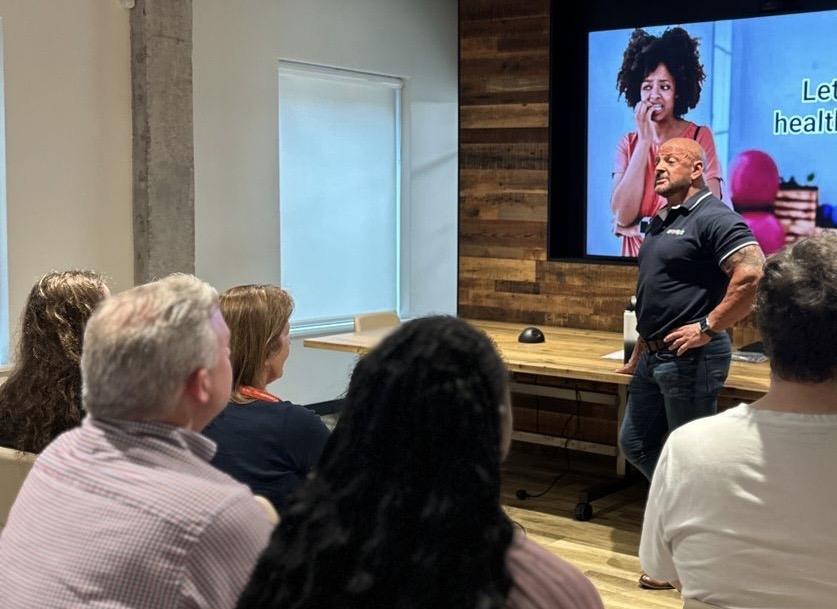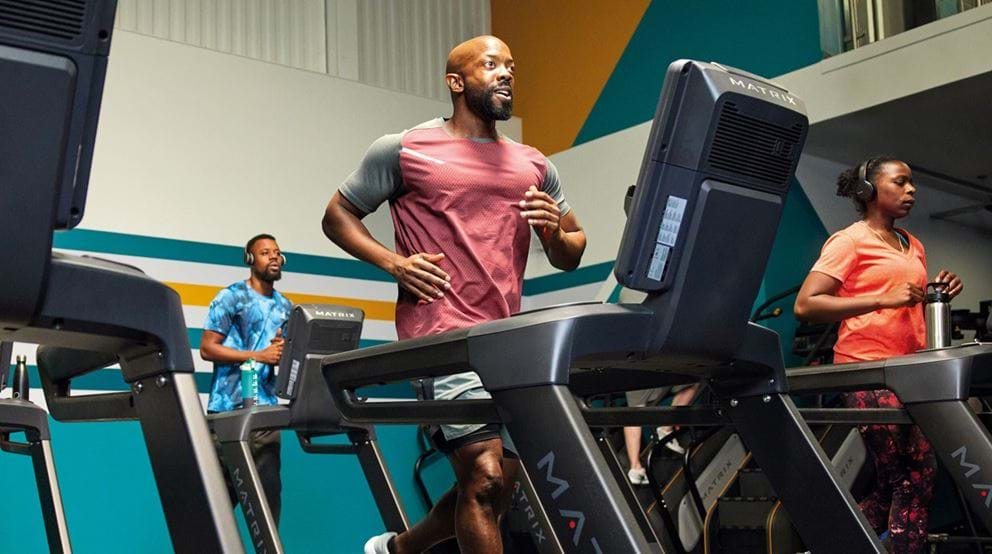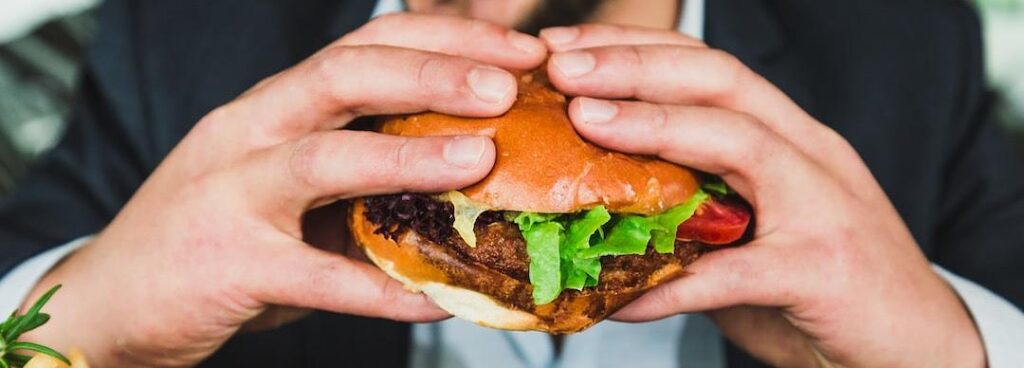Why do you need to eat more to lose body fat?
If you’re a trainer or coach and you’re reading this, I am sure you will appreciate where I’m coming from. If you’re someone who’s looking to get lean, you’ve hit a plateau or you’re still brain washed that eating low calorie is the way to go, this may be just the article you’ve been waiting for.
Does this sound a familiar phrase to you?
“I simply don’t understand how eating any more can help me lose body fat”.
There’s one common trait that all of our successful body transformation clients have in common; they eat a lot more than the average person trying to change their body shape. Time and time again I get confused looks when I tell new clients that they’re going to need to eat more than they’re used to if they want to lose body fat.
I speak to so many people who tell me that eating the amount they’re supposed to just doesn’t work for them, and that low calorie eating is the only way that they can lose weight.
Now I’m not saying that low calorie eating won’t help you lose weight, we’ve all seen people drastically drop their calories by following crazy diets and lose solid numbers on the scale. But what if your goal like a high percentage of guys we see at ‘ENERGISE’ is to lose body fat and change your body shape?
Now there will be people out there who think that counting calories is over complicating fat loss. I’m compelled to agree to a certain extent, but what those people fail to realise is that simply telling someone to eat more when they’re convinced it will make them fat could be the very reason why they’re not moving towards their goal.

Educating people why they need to do something is a very effective strategy to get them to do something for you, but you’re not necessarily asking them to weigh their food every day and count every single calorie.
When a client doesn’t follow my instructions and I keep telling them to do something, all I sound like is a broken record!
I’ve always believed that the reason a client doesn’t do something for me is because I haven’t explained it properly for them. If you’re a trainer or a coach just take a minute to think of a struggling client and ask yourself this question, have I done all I can to help them change their habits? If the answer is no then you may well find adding my strategy helpful.
So for the rest of this article I’m going to help explain the reason why it’s so important to eat more to lose body fat.
ENERGY
Our bodies convert energy from the very foods that we eat. The process begins when we consume food, followed then by the digestive process, it is then absorbed and moved throughout your body.
Certain amounts of food we store and certain amounts we use for energy. In its simplest form we must have energy to allow our body to function optimally on a daily basis.
There is a certain amount of energy required so that each of your physiological actions can function.
So when you feel sluggish, when you crave foods, when you feel irritable, when your muscles ache, and when you struggle to workout, these are all signs of physiological functions that are not working optimally. In fact these are some of the very symptoms that people get when they follow low calorie diets.
Your liver needs energy to detoxify, your heart has to pump blood around your body, your brain needs to think, your pancreas has to release insulin which helps manage your blood sugar and your muscles need strength to allow you to move. All of these are also extremely important for fat loss.
Now there are three very important values that help make up the energy that you need daily and these are listed below:
1 – BMR – Base Metabolic rate
Your base metabolic rate is the lowest level of energy expenditure needed to maintain the vital functioning organs of your body (heart, lungs, kidneys, liver, brain). So what this means is that you need a certain amount of calories to simply digest your food and stay alive. Your body requires up to 70% of your total energy requirements just to keep you alive.
2 – TEF – Thermic effect of food
Digesting and absorbing your food is an active process and it requires energy. Did you know that simply eating improves your metabolism? Protein has a higher thermic effect as it takes longer to process in the body. It is estimated that the TEF accounts for 10% of your daily energy requirements.
3 – Exercise activity
his is the amount of energy you require to do purposeful exercise. Now for various different people this can mean different things. Someone who only does a small amount of exercise may only use up to 10% of his/her energy requirements but someone that exercises a lot could use up to 30%
So if you would like to find out your own calculations, add your BMR to your TEF (10%) and a further percentage of 10% or 30% for energy that you purposefully expend daily through exercise.
I’m sure you’ll be slightly shocked when you see the numbers that you should be eating, but this really is the amount of energy your body requires on a daily basis.

Now to lose body fat we may drop the calories slightly but nothing too far from the amount you need to function optimally. We increase the amount or duration of exercise as a form of increasing the amount of energy you burn, but we never take calories to a level where the body will struggle to operate.
If you spend too long eating very low calorie diets (lower than the figure you have just worked out) your body will more than always move into starvation mode. Have you ever been in the situation where you’ve gained weight but you’ve not been eating that much at all, welcome to starvation mode!
It’s very hard mentally to get out of this rut and tell yourself to eat more when you’re gaining weight on a low calorie diet. The easiest way to not fall into this trap is to start higher and slightly adjust accordingly as you go along. You don’t have to count calories, you just need to have a good idea of the amount of energy you require daily.
I’m not going to tell you to count every bit of food every day from now on but it will really help you to spend a day looking at the foods you buy to get a good appreciation of their calorie content. Once you’ve got a better idea, you can simply go by look and feel in the future. Using a food diary is a great way to record your intake and you can make appropriate adjustments when necessary.
Now I shouldn’t have to say this final note but your intake of calories must be balanced. The calorie calculations you now have aren’t going to help you get lean if you eat processed and low quality foods.
Your body needs healthy nutritious menu’s that include foods such as protein, healthy fats, berries and vegetables.
Take a look at some of our recipes in our ENERGISE kitchen cookbooks to get an idea of what a balanced healthy meal looks like.
If you’ve been struggling to lose body fat, you’ve hit a plateau or you’re just starting out, take my advice and make sure you eat enough if you want to have a great looking body.
Steve

